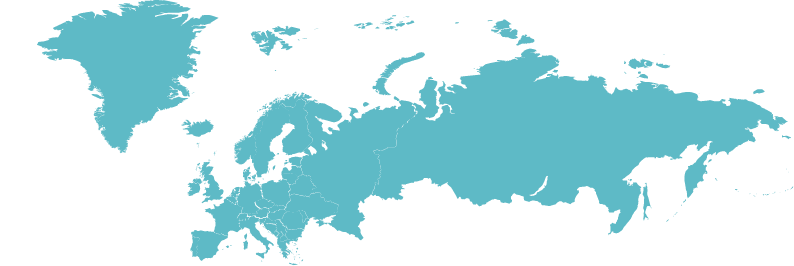Could you please tell us something about yourself: who and what inspired you to become a religious leader, what were the formative moments in your life and what keeps you motivated these days?
Frankly speaking, it all began in the 1980’s as a sort of dissident reaction to the totalitarian moral grammar and to the atheistic state indoctrination and ideology. Most formative in my life were certain people – firstly, the extraordinary international leaders who changed the world for the better, president Ronald Reagan and pope John-Paul II; secondly, a Western-Orthodox (of the Uniate Church in my native city of Plovdiv) archimandrite Velik, who did not fear the authorities and gave the first catechetical lessons to schoolchildren. This opened the door of the Christ’s Church for me as well.
Very important for my personal involvement in ecumenical spirituality and interfaith movement were my post-graduate specializations and studies at Hebrew University in Jerusalem, at the Swiss Ecumenical Institute Bossey of the World Council of Churches, and at the Orthodox Theological Institute of the Ecumenical Patriarchate – Chambesy/Geneva, which is a joint-venture program with the Protestant Theological Faculty of Geneva University and the Catholic Theological Faculty of Fribourg University.
What positive and negative trends do you see in today’s Europe and how can people of faith help to reinforce the former and mitigate the latter?
Today all religious practitioners are facing secularization and anti-clerical ideologies. They are obliged to stand all together again in defense of the place of religious ethics and moral standards within the framework of Euro-Atlantic values of a United Europe. Today’s togetherness of all religions, at least on a grassroots level, is one of the positive trends.
The most negative trend in today’s Europe is the rise of nationalism and other “-isms”. Nationalism teaches you to be proud of things that you have not achieved, to hate people who you do not know.
How has the migration crisis affected the political, social and interreligious dynamics in Bulgaria and South East Europe? What should be done by civic and religious groups?
The migration crisis affects Bulgaria like the rest of Europe. But it is poverty, an everyday challenge for Bulgarians, which discourages many refugees from seeking shelter in Europe’s poorest nation. “Poverty is a weapon of mass destruction: we need war on it”, said Reverend Jesse Jackson, an iconic American civil rights activist in 2014. Nowadays, much like the US, we are freer — but less equal. The civic and and religious groups are obliged to influence the political milieu and decision-makers in our respective countries to implement the right instruments and standards for the most humane solutions possible regarding resettlement, socialization and integration of refugees in Europe.
What makes the approach to interfaith dialogue by the United Religions Initiative special?
URI is a global grassroots interfaith network that cultivates peace and justice by engaging people to bridge religious and cultural differences and work together for the good of their communities and the world. URI provides, first, inter-cultural, inter-ethnic, inter-religious and interfaith dialogue, and second, a bridge-building role between secular society and spirituality and religions.
URI-Europe invites like-minded people into a conversation about how to extend and define where the cooperation between Cooperation Circles and partners can be a real win-win. It offers a possibility to create deep, mutually-enriching, content-based cooperation.
What examples can you give of the most practical ways that your efforts have made a difference in people’s lives?
URI Europe as a grassroots movement supports:
- Social cohesion: Bridge-building between religious communities and the secular society.
- Encountering: Helping people to know each other heart-to-heart by replacing prejudice with friendship, and division with cooperation.
- Diversity: Becoming familiar with cultural, ethnic and religious diversity and interfaith work.
- Prevention against fear & radicalism.
URI Europe is interconnected in an international context:
- Global network: our partners can benefit from being part of an extended network on a grassroots level by thinking globally while acting locally.
- Sharing: We share experience, wisdom and knowledge.
URI Global has a voice in international institutions, especially the United Nations. It provides direct access to international experts, key speakers and trainers on various topics, i.e. intercultural understanding, islamophobia, environment, migration issues, mediation, conflict resolution, youth, women and good practices.
What were your impressions from the 2015 Parliament of the World’s Religions in Salt Lake City?
The Parliament of the World’s Religions is a historic event where we can meet and interact with people from many different religions and learn from them. It was a great opportunity to meet attendees from all over the world, learn about them and make them aware of our own religion and community, with face-to-face communication at various sessions, through presentations, at exhibit booths, at lunch served by the Sikh community, at Mormon concerts. We shared a feeling of brotherhood with attendees of all faiths.
How could this global forum best reflect realities in Central and Eastern Europe when it comes to Bratislava? If there was one feature that would make a Bratislava Forum unforgettable, what would it be?
It would be such a great joy to have so many participants and visitors from all European countries, from the four corners of the European continent, and above all, from the former Soviet bloc sister-countries – where for several decades we were forced mostly into dialogue with state ideologies, not with religions!
Rev. Gramatikoff is a hierodeacon of the Bulgarian Orthodox Church, as well a Doctor (Didiaskalos) of the Universal Orthodox Church. He is currently the Chief Expert in religious questions in the municipality of Plovdiv, as well as Vice President of the Eastern European Forum for Dialogue-Bridges NGO. He has been working for years in the field of human rights, defending the traditional view of Orthodox church in terms of respect for all beliefs, beside all theological conceptions. He is a current URI Global Council Trustee for Europe.
